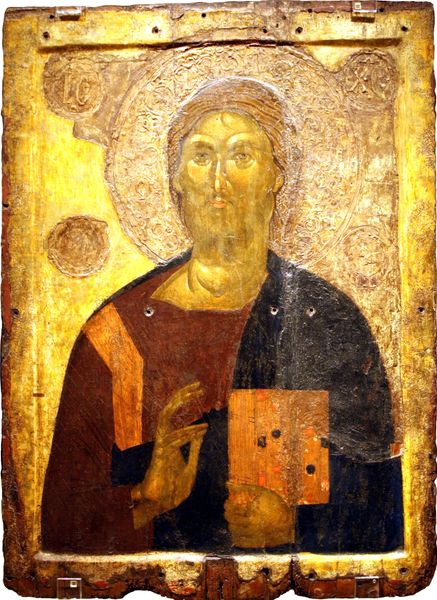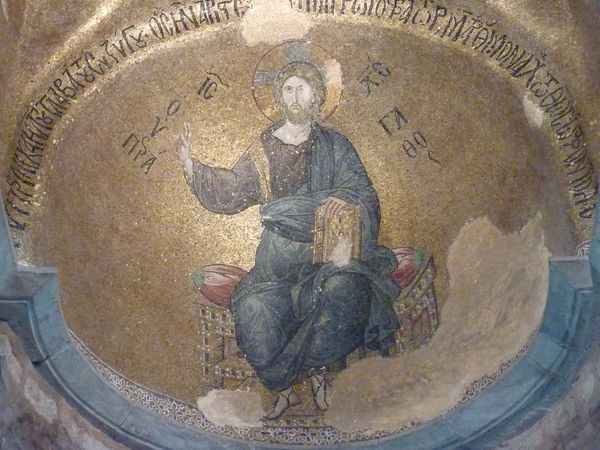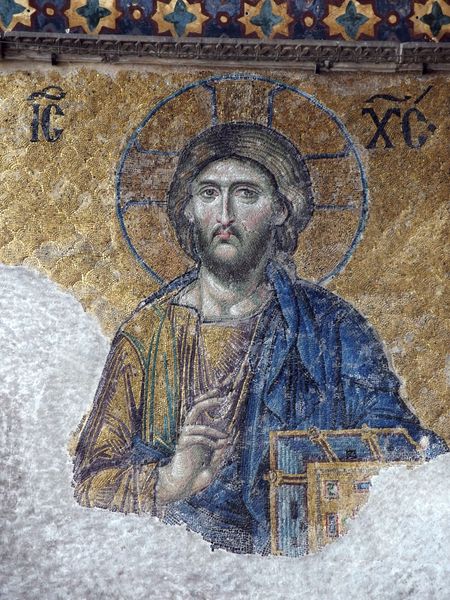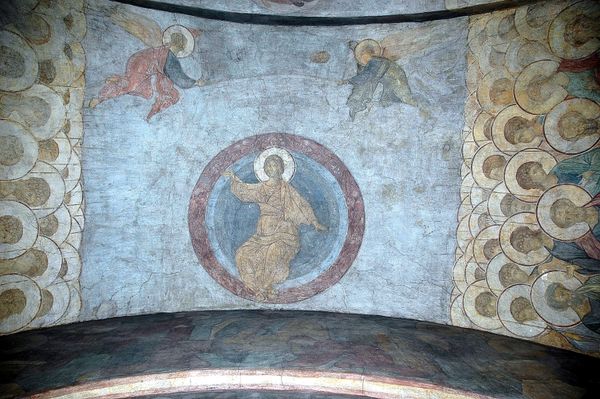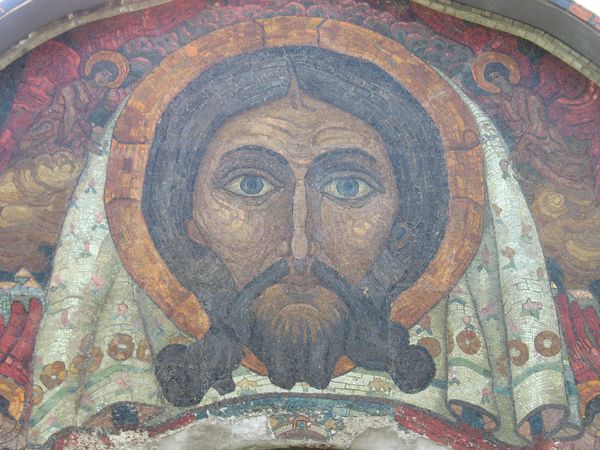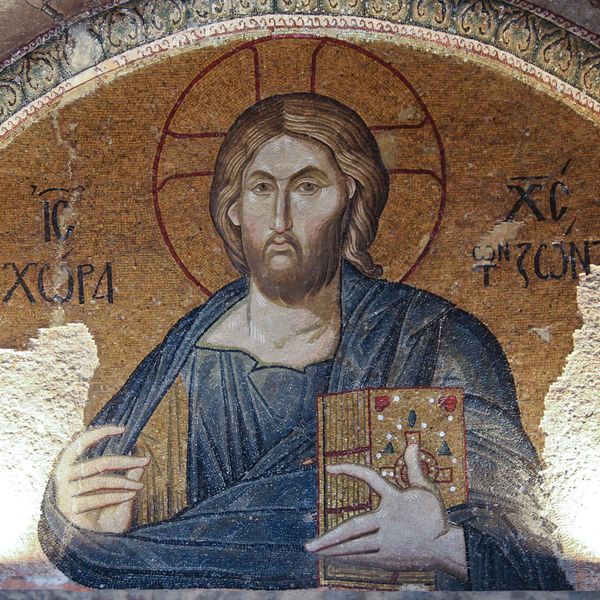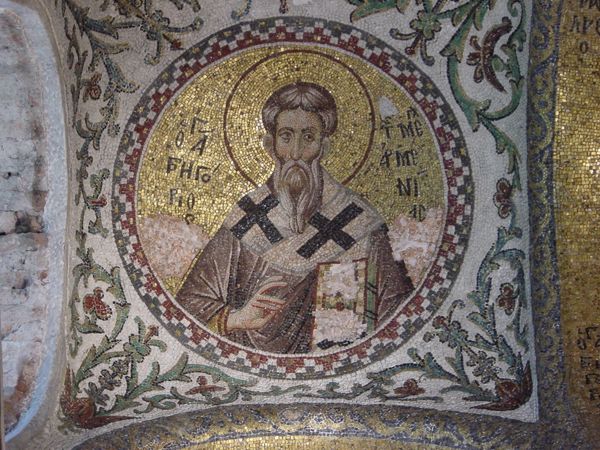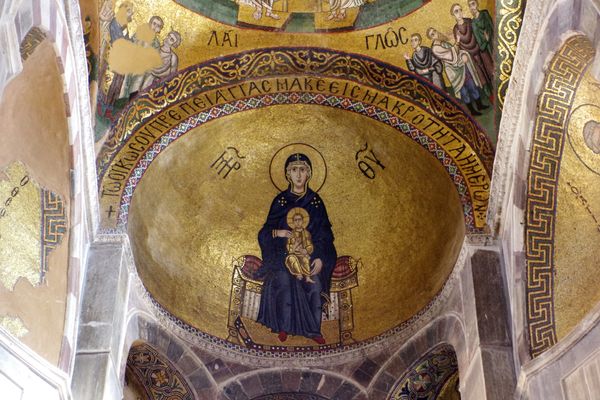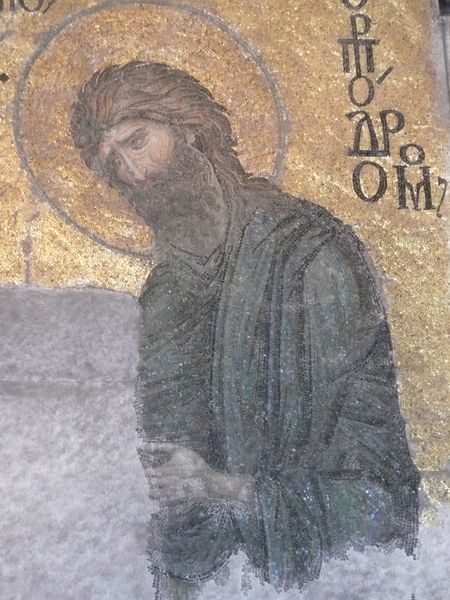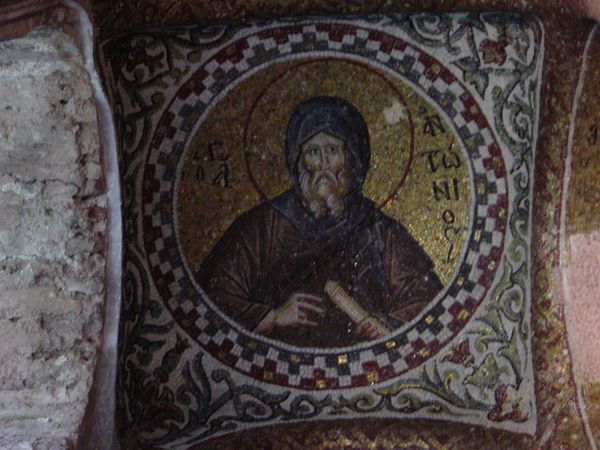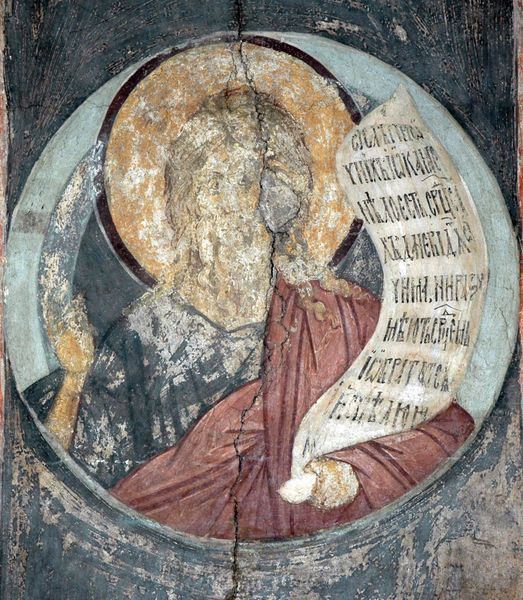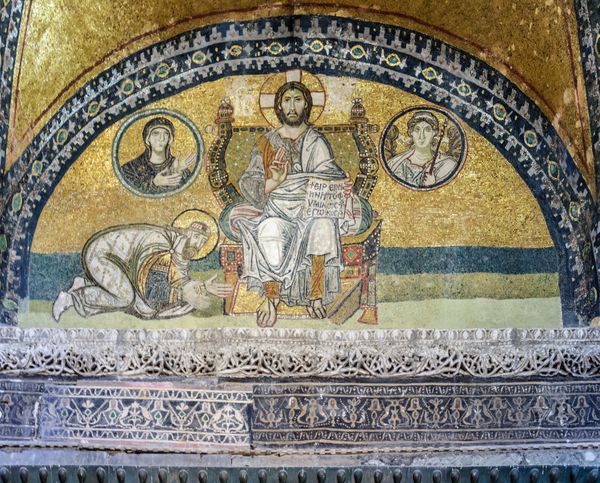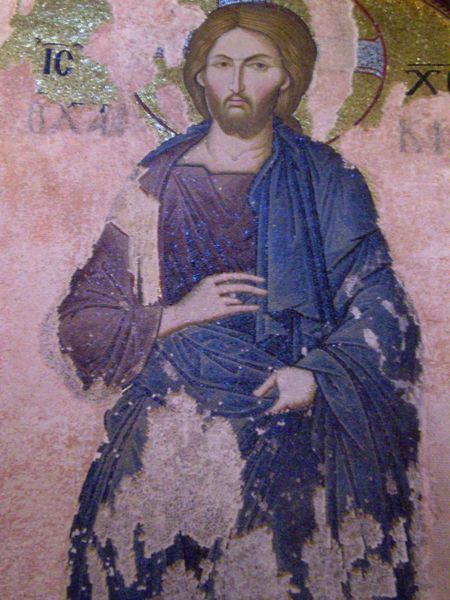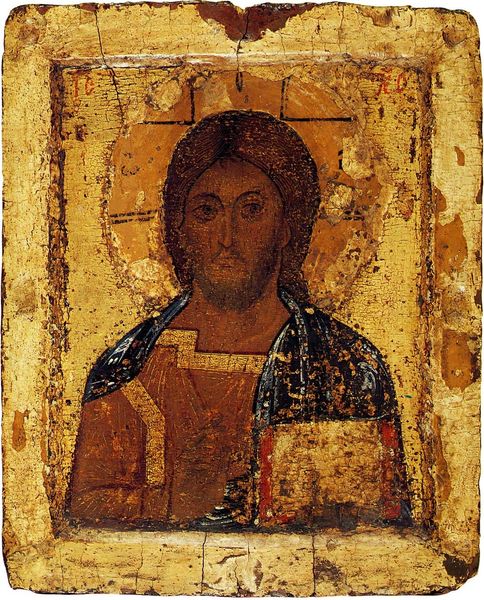
Chiesa Pammacaristos (Fetiye camii) 1300
0:00
0:00
byzantinemosaics
Pammakaristos Church, Istanbul, Turkey
mosaic
#
mosaic
#
byzantine-art
#
figuration
Copyright: Public domain
Here we have a mosaic of Christ Pantocrator, made by Byzantine artists in Istanbul at an unknown date. It is located in the Pammakaristos Church, later known as Fetiye Mosque, a building with a long and fascinating institutional history. Mosaics like this one were not just decoration; they played a crucial role in Byzantine society. As a visual representation of divine authority, this mosaic served to legitimize the power of the Byzantine emperors. The depiction of Christ as Pantocrator, ruler of all, reinforces the idea of a divinely ordained social hierarchy. The location of the mosaic in a church further emphasizes the close relationship between religious and political power in Byzantine society. Understanding the mosaic requires looking into the social and political context in which it was created. Historical texts, religious documents, and architectural studies can provide valuable insights into the meaning and function of this artwork.
Comments
No comments
Be the first to comment and join the conversation on the ultimate creative platform.
